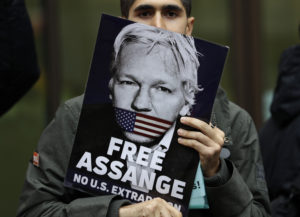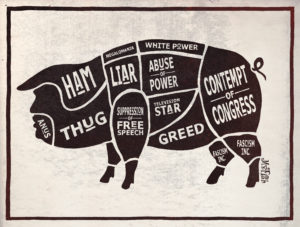U.N. Report Says NSA’s Mass Digital Surveillance ‘Violates Core Privacy Rights’
The Intercept's Glenn Greenwald writes that a report recently released by the United Nations' top official for counterterrorism and human rights rejects the "key argument often made by American defenders of the NSA." Shutterstock
Shutterstock
Shutterstock
The Intercept’s Glenn Greenwald writes that a report recently released by the United Nations’ top official for counterterrorism and human rights rejects the “key argument often made by American defenders of the NSA.” That is that the National Security Agency’s mass data collection is somehow justified “because Americans are given special protections” that others are not.
The Intercept:
The United Nations’ top official for counter-terrorism and human rights (known as the “Special Rapporteur”) issued a formal report to the U.N. General Assembly today that condemns mass electronic surveillance as a clear violation of core privacy rights guaranteed by multiple treaties and conventions. “The hard truth is that the use of mass surveillance technology effectively does away with the right to privacy of communications on the Internet altogether,” the report concluded.
Central to the Rapporteur’s findings is the distinction between “targeted surveillance” — which “depend[s] upon the existence of prior suspicion of the targeted individual or organization” — and “mass surveillance,” whereby “states with high levels of Internet penetration can [] gain access to the telephone and e-mail content of an effectively unlimited number of users and maintain an overview of Internet activity associated with particular websites.” In a system of “mass surveillance,” the report explained, “all of this is possible without any prior suspicion related to a specific individual or organization. The communications of literally every Internet user are potentially open for inspection by intelligence and law enforcement agencies in the States concerned.”
Mass surveillance thus “amounts to a systematic interference with the right to respect for the privacy of communications,” it declared. As a result, “it is incompatible with existing concepts of privacy for States to collect all communications or metadata all the time indiscriminately.”
In concluding that mass surveillance impinges core privacy rights, the report was primarily focused on the International Covenant on Civil and Political Rights, a treaty enacted by the General Assembly in 1966, to which all of the members of the “Five Eyes” alliance are signatories. The U.S. ratified the treaty in 1992, albeit with various reservations that allowed for the continuation of the death penalty and which rendered its domestic law supreme. With the exception of the U.S.’s Persian Gulf allies (Saudi Arabia, UAE and Qatar), virtually every major country has signed the treaty.
—Posted by Natasha Hakimi Zapata
Your support matters…Independent journalism is under threat and overshadowed by heavily funded mainstream media.
You can help level the playing field. Become a member.
Your tax-deductible contribution keeps us digging beneath the headlines to give you thought-provoking, investigative reporting and analysis that unearths what's really happening- without compromise.
Give today to support our courageous, independent journalists.






You need to be a supporter to comment.
There are currently no responses to this article.
Be the first to respond.